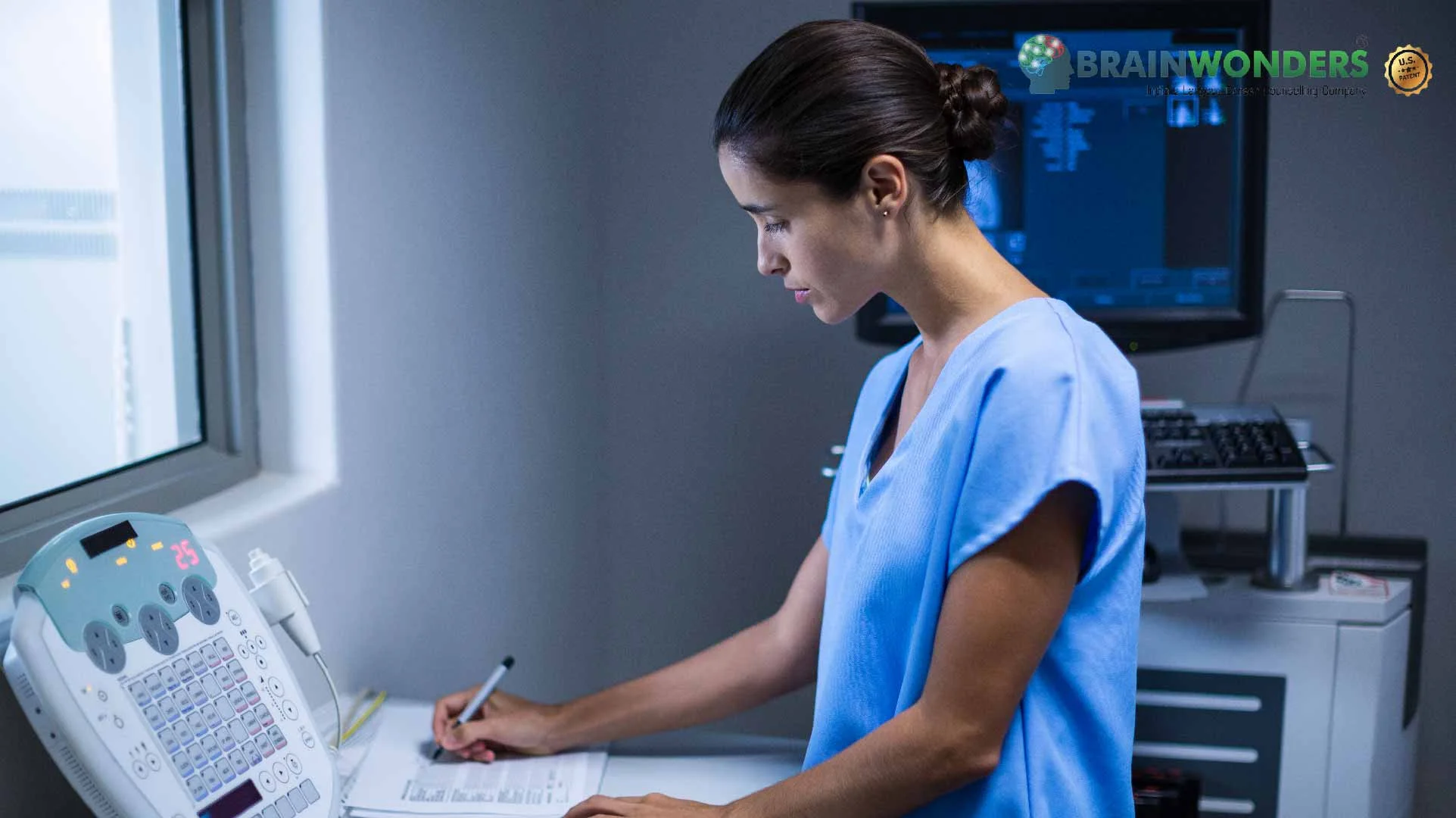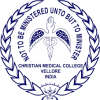How to become an Informatic Nurse
Overview, Courses, Exam, Colleges, Pathways, Salary

Overview
Who is Informatic Nurse ?
- Manufacturing: Industrial health and safety managers are needed in manufacturing industries to ensure the safety of workers operating heavy machinery, handling chemicals, and working in various production processes.
- Construction: Construction sites pose unique health and safety risks, making industrial health and safety managers crucial in managing hazards, implementing safety protocols, and ensuring compliance with safety regulations.
- Oil and Gas: The oil and gas industry involves complex operations and potentially hazardous environments. Industrial health and safety managers are vital in mitigating risks, overseeing safety procedures, and promoting a safety culture.
- Healthcare: In healthcare settings, industrial health and safety managers focus on the safety of healthcare professionals, patients, and visitors. They address risks related to infection control, hazardous substances, ergonomics, and emergency preparedness.
- Transportation and Logistics: Industrial health and safety managers in transportation and logistics industries focus on ensuring the safety of workers involved in warehousing, shipping, transportation, and distribution operations.
- Pharmaceuticals and Chemicals: The pharmaceutical and chemical industries require stringent safety measures. Industrial health and safety managers are critical in managing chemical hazards, ensuring proper handling and storage, and implementing safety protocols.
- Energy and Utilities: Industrial health and safety managers in the energy and utilities sector oversee workers' safety in power generation, transmission, and distribution. They address electrical systems, high-voltage equipment risks, and other industry-specific hazards.
- Government and Public Sector: Government agencies and public sector organizations employ industrial health and safety managers to enforce health and safety regulations, conduct inspections, and provide guidance to ensure safe working environments.
Typical day at work
What does Informatic Nurse do?
An informatics nurse, also known as a nursing informatics specialist or informatics nurse specialist, combines expertise in nursing and information technology to improve the management and delivery of healthcare services. They are critical in bridging the gap between nursing practice and technology systems within healthcare settings.
Informatics nurses use their nursing knowledge and technical skills to design, implement, and evaluate healthcare information systems and technologies. They work closely with healthcare teams, including nurses, physicians, administrators, and IT professionals, to ensure that technology solutions are effectively integrated into nursing workflows and meet the needs of patients and healthcare providers.
Critical responsibilities of informatics nurses include:
- System Implementation: Collaborating with stakeholders to implement and customize electronic health record (EHR) systems, clinical decision support systems, and other healthcare IT applications. They ensure the systems are user-friendly and support efficient and safe patient care.
- Data Management: Ensuring accurate and secure documentation and storage of patient information. Informatics nurses develop data standards, protocols, and procedures for data entry, retrieval, and reporting. They also contribute to data analysis and utilization for quality improvement and research.
- Workflow Analysis: Assessing nursing workflows and processes to identify areas for improvement and streamline practices. Informatics nurses work to optimize the use of technology, such as barcode medication administration or telehealth, to enhance efficiency and patient safety.
- Training and Education: Providing training and education to nurses and other healthcare staff on using technology systems and applications. They develop training materials, conduct workshops, and provide ongoing support to ensure the proper utilization of technology tools.
- Policy and Standards Development: Contributing to developing policies, procedures, and best practices related to nursing informatics, data privacy, security, and interoperability. Informatics nurses ensure compliance with regulatory requirements and standards.
- Research and Evaluation: Participating in research projects to explore the impact of technology on nursing practice, patient outcomes, and healthcare delivery. They evaluate the effectiveness and usability of technology solutions and contribute to evidence-based practice in nursing informatics.
Informatics nurses are at the forefront of leveraging technology to enhance nursing practice, improve patient care, and advance healthcare outcomes. Their expertise in nursing, information technology, and healthcare systems is essential in shaping the digital transformation of healthcare.
Abilities and Aptitude needed
What are the skills, abilities & aptitude needed to become Informatic Nurse?
- Nursing Knowledge: A strong foundation in nursing practice, including a deep understanding of clinical workflows, patient care processes, and nursing standards. Knowledge of nursing terminologies, methods, and evidence-based guidelines is crucial.
- Information Technology Proficiency: Proficiency in healthcare information systems, electronic health records (EHRs), and other health information technologies. Familiarity with database management, data analysis, and system implementation is essential.
- Analytical and Problem-Solving Skills: The ability to analyze complex healthcare data, identify patterns and trends, and make informed decisions to improve patient care and optimize workflows. Strong problem-solving skills are necessary to address technology-related issues and optimize system performance.
- Communication and Collaboration: Effective communication skills to collaborate with interdisciplinary teams, including nurses, physicians, IT professionals, and administrators. Informatics nurses must be able to translate technical concepts into easily understandable language for non-technical stakeholders.
- Attention to Detail: Meticulous attention to detail is critical for data accuracy, documentation, and system configurations. Informatics nurses must ensure that information is entered correctly and that system settings align with clinical requirements.
- Adaptability and Continuous Learning: The field of nursing informatics is constantly evolving. Informatics nurses must be adaptable and willing to continuously learn and stay updated with emerging technologies, industry trends, and best practices in healthcare informatics.
- Project Management Skills: The ability to effectively plan, coordinate, and manage informatics projects. Informatics nurses should possess project planning, resource allocation, timeline management, and risk assessment skills to ensure successful system implementations.
- User Training and Support: Proficiency in providing training and support to end-users using information systems, such as nurses and healthcare staff. Informatics nurses should possess teaching skills to deliver effective training programs and provide ongoing support for system utilization.
- Ethical Considerations: A strong understanding of ethical and legal considerations regarding healthcare data privacy, security, and confidentiality. Informatics nurses must ensure compliance with relevant regulations and protect patient information.
- Critical Thinking: The ability to critically evaluate information, assess the impact of technology on nursing practice, and make informed decisions to optimize patient care and workflow efficiency.
Pathways
How to become an Informatic Nurse?
Entrance Exam
Entrance Exam for Informatic Nurse ?
Courses
Which course I can pursue?
Best Colleges
Which are the best colleges to attend to become an Informatic Nurse?
Industries
Which Industries are open for Informatic Nurse?
In nursing, informatics is a specialised area that uses technology and information systems to improve healthcare delivery and patient outcomes. Informatics nurses, also known as nursing informaticists or clinical informatics specialists, play a vital role in integrating technology into various healthcare settings. They work at the intersection of nursing, information technology, and data management.
Informatics nurses can find opportunities in several industries, including:
- Healthcare organisations: Informatics nurses are employed in hospitals, clinics, nursing homes, and other healthcare facilities. They collaborate with healthcare professionals to implement and optimise electronic health record (EHR) systems, clinical decision support tools, and other technologies that enhance patient care and safety.
- Healthcare technology companies: Many healthcare technology companies develop and provide software solutions, medical devices, and other technological tools for the healthcare industry. Informatics nurses can work for these companies in product development, software implementation, training, and customer support roles.
- Consulting firms: Informatics nurses with expertise in healthcare technology and informatics can work for consulting firms specialising in healthcare IT. They may provide advisory services, assist with system implementations, conduct workflow analysis, and offer training and support to clients.
- Academic institutions: Informatics nurses can work in universities and colleges as educators and researchers. They may teach courses on healthcare informatics, contribute to research projects, and mentor students pursuing careers in nursing informatics.
- Government and public health organisations: Informatics nurses can work for government agencies and public health organisations, such as the Department of Health, national health institutes, or public health departments. They may be involved in health information exchange initiatives, data analytics for population health management, and developing public health informatics systems.
- Health insurance companies: Informatics nurses can contribute to health insurance companies by leveraging their expertise to improve the efficiency of claims processing, data analysis, and healthcare utilisation management. They may also assist with developing and implementing telehealth and remote monitoring programs.
internship
Are there internships available for Informatic Nurse?
There are internships available for individuals interested in pursuing a career as an informatics nurse. These internships provide valuable hands-on experience and exposure to nursing informatics.
Internships in nursing informatics can be found in various healthcare settings, including hospitals, clinics, healthcare technology companies, and research institutions. These internships offer opportunities to work alongside experienced informatics nurses and healthcare IT professionals, gaining practical skills and knowledge in healthcare information systems, data management, and technology implementation.
During internships, individuals may participate in projects related to system implementations, data analysis, workflow optimization, and user training. They may also assist in conducting research or quality improvement initiatives related to nursing informatics.
Internships in nursing informatics can vary in duration and requirements. Some internships may be part of formal academic programs, while others may be offered directly by healthcare organizations or technology vendors. Exploring internship opportunities through job portals, professional nursing organizations, or by contacting healthcare institutions directly to inquire about available internships in nursing informatics is advisable.
Career outlook
What does the future look like for Informatic Nurse?
The future for informatics nurses is promising and transformative. As healthcare increasingly relies on technology, informatics nurses will play a vital role in shaping the digital landscape. Integrating electronic health records, telehealth, artificial intelligence, and data analytics will enhance patient care, improve workflow efficiency, and enable evidence-based practice. Informatic nurses will lead initiatives to optimise health information systems, ensure interoperability, and protect patient data privacy. They will contribute to developing innovative technologies and workflows that enhance healthcare delivery. With their unique blend of nursing expertise and informatics knowledge, informatics nurses will be at the forefront of healthcare innovation, driving improved patient outcomes and shaping the future of healthcare through technology-driven solutions. Their skills and contributions will continue to be in high demand as healthcare systems strive for digital transformation and improved patient care.


.webp)


